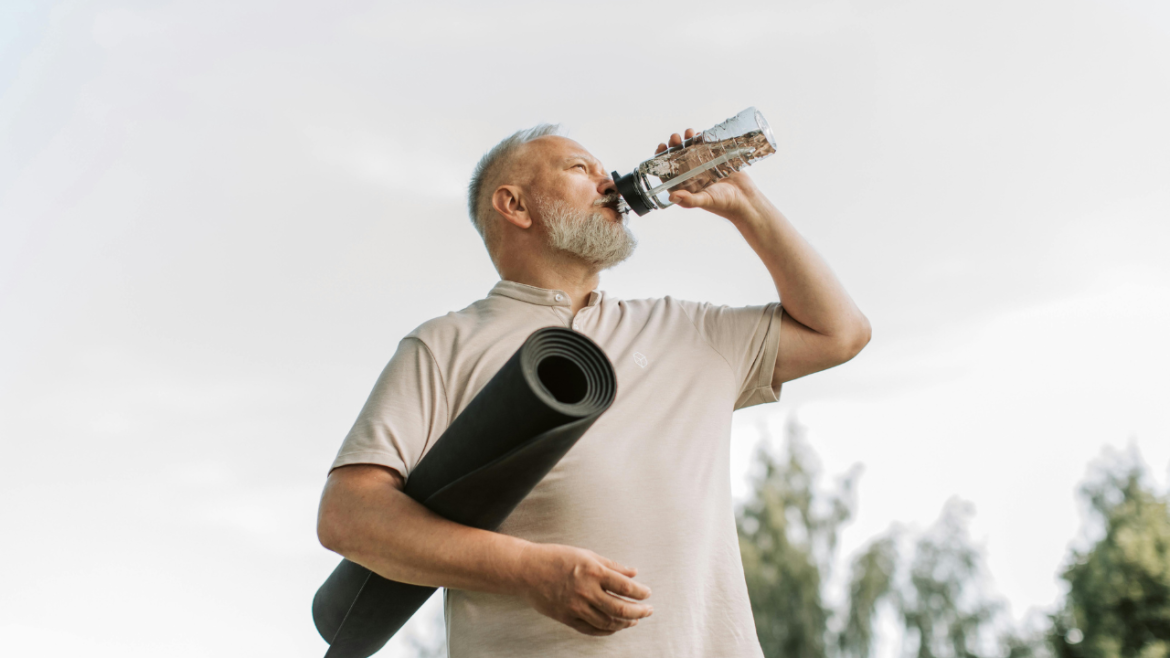Did you know that Leading Edge Senior Care has a Dementia Support Group? We meet monthly in Mesa. For more details <click here>
How To Keep Seniors Hydrated
Maintaining proper hydration is essential for everyone, but it is particularly crucial for seniors. As we age, our bodies undergo various changes that can affect our ability to stay hydrated. These changes can lead to serious health issues if not properly managed.
Therefore, understanding the importance of hydration and implementing strategies to ensure seniors are well-hydrated can significantly impact their overall health and well-being.
The Importance of Hydration for Seniors
Hydration plays a vital role in maintaining bodily functions, including regulating body temperature, lubricating joints, and supporting digestion. For seniors, staying hydrated is even more critical due to the higher risk of dehydration.
Aging causes a natural reduction in the sensation of thirst, meaning seniors may not feel thirsty even when their bodies need fluids. Additionally, some medications commonly taken by older adults can increase the risk of dehydration.
Recognizing Signs of Dehydration
Recognizing the signs of dehydration in seniors is crucial for preventing serious health issues. Symptoms can include dry mouth, fatigue, dizziness, dark-colored urine, and confusion. In severe cases, dehydration can lead to hospitalization.
Being aware of these signs can help caregivers and family members take timely action to rehydrate seniors.
Strategies to Encourage Hydration
There are several effective strategies to encourage seniors to drink more fluids. One of the simplest methods is to make drinking water more accessible. Keeping water bottles within reach can remind seniors to take sips throughout the day.
Offering a variety of beverages, such as herbal teas, milk, or diluted fruit juices, can also make hydration more appealing.
The Role of Diet in Hydration
A balanced diet can contribute significantly to hydration. Many fruits and vegetables have high water content and can help keep seniors hydrated. Including foods like watermelon, cucumbers, and oranges in their diet can provide additional fluids. Soups and broths are also excellent choices, especially for those who may not enjoy drinking plain water.
Creating a Hydration Schedule
Establishing a hydration schedule can be beneficial. Encouraging seniors to drink a glass of water at regular intervals, such as before meals and during medication times, can help ensure they get enough fluids throughout the day. Setting reminders or using apps designed for hydration tracking can be useful tools for maintaining consistency.
Addressing Barriers to Hydration
There are several barriers that might prevent seniors from staying hydrated. Some may have physical difficulties that make it hard to get up and get a drink.
In such cases, using lightweight, easy-to-hold containers can help. For those with cognitive impairments, gentle reminders and offering drinks regularly can ensure they stay hydrated.
The Impact of Weather on Hydration
Weather can significantly impact hydration needs. During hot weather, seniors lose more fluids through sweat, increasing their risk of dehydration. In colder months, the dry air can also lead to fluid loss.
It’s important to adjust fluid intake based on the weather, encouraging seniors to drink more during heatwaves and ensuring they are adequately hydrated even in winter.
Monitoring and Adjusting Fluid Intake
Regularly monitoring fluid intake can help ensure seniors remain hydrated. Keeping a log of daily fluid consumption can identify patterns and areas that need improvement.
Healthcare providers can also offer valuable guidance on the appropriate amount of fluids needed, considering individual health conditions and lifestyle factors.
The Emotional Aspect of Hydration
Ensuring seniors stay hydrated is not just about physical health; it also has an emotional component. Feeling cared for and having their needs met can improve their overall mood and well-being.
Sharing a cup of tea or a refreshing drink can also be a social activity, providing emotional comfort and strengthening bonds with caregivers and loved ones.
Conclusion
Maintaining proper hydration in seniors is a vital aspect of their health and well-being. Understanding the importance of hydration, recognizing the signs of dehydration, and implementing effective strategies can significantly impact their quality of life. By making hydration a priority, we can help seniors stay healthy, active, and engaged in their daily lives.

